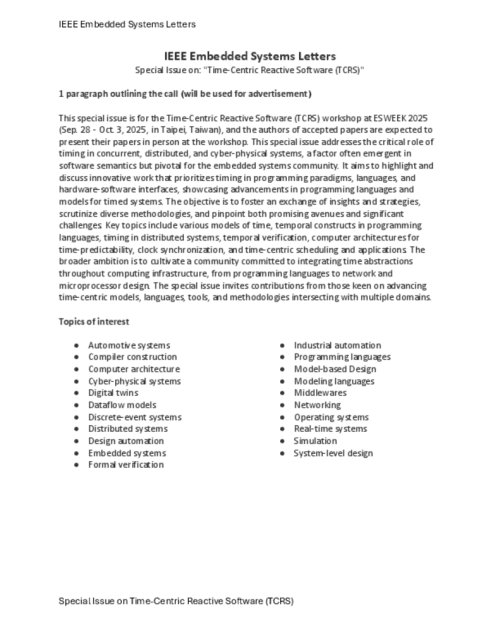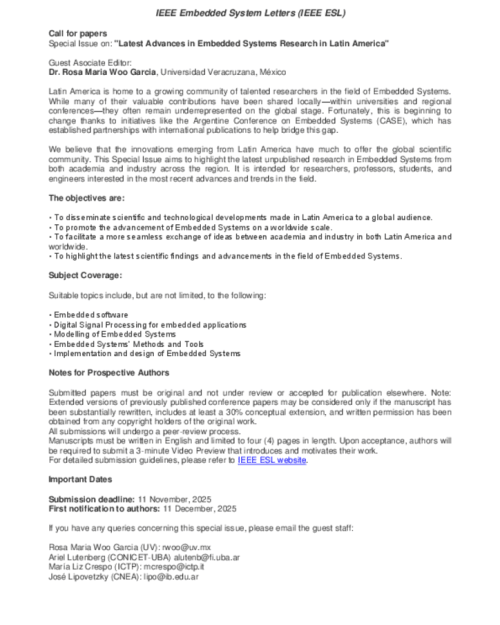Special Issues
IEEE Embedded Systems Letters (ESL) and the community values special issues on emerging and impactful topics in embedded systems. Special issues provide a unique platform to highlight cutting-edge research and foster collaboration within focused areas of interest. By inviting contributions from top experts in the field, IEEE ESL aims to drive innovation, attract high-quality submissions, and enhance the journal’s visibility and impact. We encourage proposals for special issues that explore new trends, challenges, and advancements in embedded systems, and look forward to showcasing the latest breakthroughs in this rapidly evolving domain.
A successful special issue application must have:
- A compelling and current research topic.
- Recommended 3 guest editors, but at most 5 guest editors.
- At least one of the guest editors must be a current Associate Editor in IEEE ESL.
- Guest editors must have publications in the area they are proposing.
- Guest editors must have prior publications in IEEE ESL, or some major embedded systems, computer architecture, design automation, or systems conferences and/or journals, like ESWEEK, DAC, DATE, ACM TECS, etc.
Special Issues Call Documents
-
Call Doc CategoryESL
-
Call Doc CategoryESL



